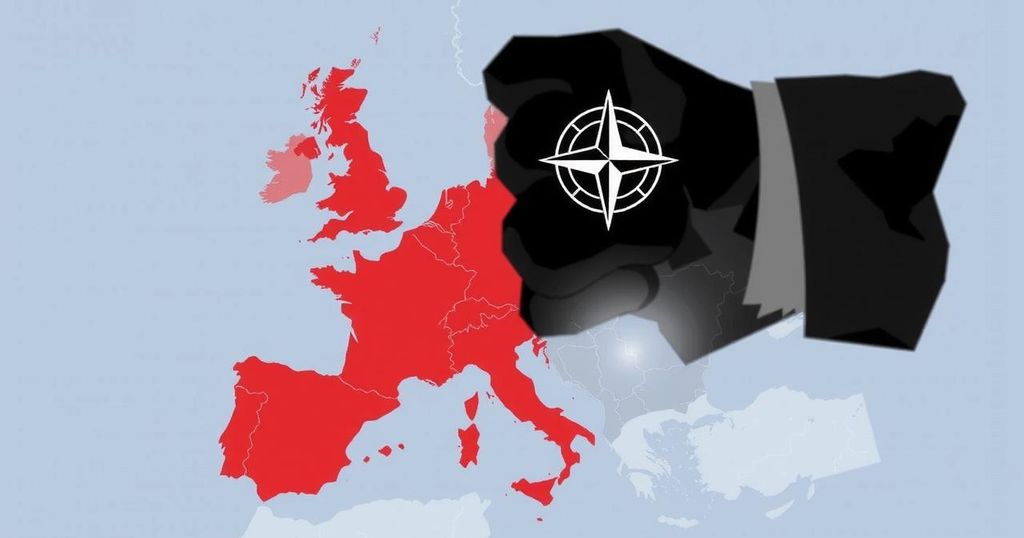Global news
ADAM PARSONS, AFRICA, CAL, CALIN GEORGESCU, CONSTITUTIONAL COURT OF, EUROPE, EUROPE/ASIA, EUROPEAN COMMISSION, EUROPEAN UNION, FOREIGN POLICY, GEORGESCU, GHANA, HO, INTERNATIONAL RELATIONS, IRAN'S PRESIDENTIAL ELECTION, NATO, PUTIN, ROMANIA, RUSSIA, RUSSIA-UKRAINE WAR, SKY NEWS, SOUTH KOREA, UK, VLADIMIR PUTIN
Isaac Bennett
0 Comments
NATO Raises Alarm Over Alleged Russian Interference in Romanian Elections
Romania has halted its presidential elections, which were expected to favor Calin Georgescu, amid allegations of Russian interference. Authorities accused Russia of executing a “hybrid attack” to boost Georgescu’s campaign through social media. This incident raises alarms within NATO, as it reflects ongoing attempts to influence member states and could elicit strong responses if proven true.
NATO officials are on high alert following Romania’s decision to suspend its presidential elections, which were expected to favor Calin Georgescu, a lesser-known far-right candidate with alleged pro-Russian sentiments. The Romanian authorities have accused Russia of orchestrating a “hybrid attack” aimed at influencing the election results in Georgescu’s favor through a coordinated social media campaign. This incident highlights the growing concern among NATO members regarding Russia’s ongoing attempts to undermine the alliance by supporting anti-NATO political actors in member states.
As observations regarding Russia’s disinformation tactics intensify, NATO countries are increasingly vigilant in recognizing these hybrid threats. The challenges posed by political influence operations are particularly problematic due to their ambiguous nature, making it challenging to establish clear ownership or intent. The case in Romania, where the constitutional court has invalidated the first round of voting due to suspected foreign interference, epitomizes this growing threat, prompting discussions on potential NATO responses to safeguard its integrity.
In light of the claims made by Romanian officials, intelligence reports have surfaced suggesting that Georgescu’s campaign garnered substantial backing from an international influence operation. If confirmed, these actions would exemplify a significant assault on NATO’s stability, potentially leading to unconventional countermeasures from the alliance. Concurrently, the annulment of the election results raises critical questions about the integrity of Romania’s democratic processes, presenting a risk of undermining public trust in governmental institutions.
Russia’s influence tactics have increasingly targeted NATO nations, with ongoing attempts to sway public opinion and political outcomes in favor of figures who harbor skepticism towards the alliance. The use of social media as a tool for amplifying political narratives undermines the stability of democratic processes across member states. Romania’s recent election crisis serves as a potential case study of the implications of such hybrid warfare tactics, particularly in light of its geographical proximity to Russia and the historical context of its political affiliations.
The situation unfolding in Romania serves as a critical reminder of the vulnerabilities faced by NATO amidst Russian disinformation campaigns. Should evidence of this interference be substantiated, it would prompt serious considerations for NATO’s strategic response to protect its democratic values and systemic integrity. Additionally, Romania’s internal challenges in navigating the fallout from the election annulment further complicate the regional political landscape, emphasizing the need for vigilance among all NATO allies.
Original Source: news.sky.com




Post Comment